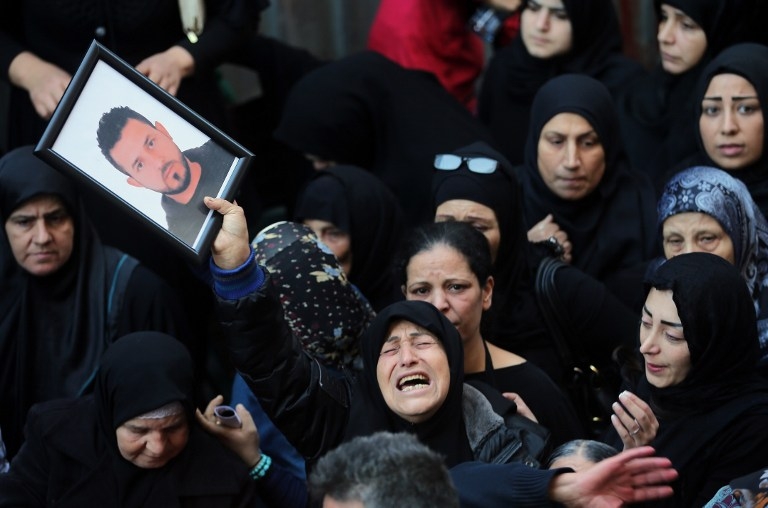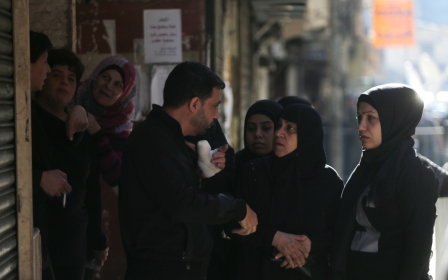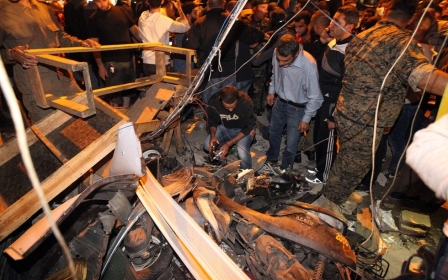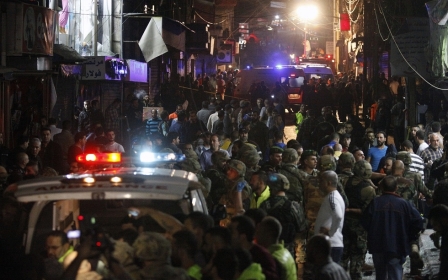11 arrested in Lebanon over deadliest attack in 25 years

Lebanese security forces have arrested 11 people, most of them Syrian nationals, over twin bombings in Beirut last week that killed 44 people, the interior minister said Sunday.
The attackers had planned to launch five suicide bombings inside a hospital in the deprived Beirut suburb of Burj al-Barajneh on Thursday, Interior Minister Nuhad Mashnuq said, but they changed their target because of heavy security. The two explosions then took place in the commercial and residential area of Burg el-Barajneh, when families were out and about after work.
Dramatic footage from the scene showed one man wearing a suicide vest, reportedly on his way to attack the hospital, being chased and apprehended by security services as shots rang out.
One of the bombers attempted to attack a Shia religious venue packed with worshippers on the last day of the holy month of Muharram.
He was prevented from entering the site by one of the worshippers, named locally as Adel Tormos – Tormos and his young daughter were reportedly killed when the bomber detonated his explosive vest outside the venue instead.
Translation: One of the martyrs, Adel Tormos, sacrificed himself to stop of one the suicide bombers before he entered the mosque
Mashnuq on Sunday praised the Lebanese security services, saying all nine suspects had been apprehended within 48 hours of the attack.
"The detained include seven Syrians and two Lebanese, one of them a (would-be) suicide bomber and the other a trafficker who smuggled them across the border from Syria," Interior Minister Nuhad Mashnuq told a news conference.
He said the Syrians were detained in a Palestinian refugee camp inside Burj al-Barajneh and a flat in the capital's eastern district of Ashrafieh that had been used to prepare the explosive belts.
The Islamic State group claimed responsibility for Thursday's attacks, which targeted a district where the Hezbollah movement is known to have strong support.
A statement issued by IS claiming responsibility for the attacks, the worst to hit Lebanon since the end of a bloody civil war 25 years ago, did not mention the group by name but used starkly sectarian language to explain the bombing on the Shia-majority district.
Hezbollah is fighting in support of President Bashar al-Assad in neighbouring Syria.
On Saturday, Hezbollah leader Hassan Nasrallah gave a defiant speech, pledging that his group would continue to fight in Syria.
“Their goal is to pressure the resistance to withdraw from the battle … in Syria,” he said in a televised address.
“[These attacks] will bring the opposite results. They will increase our determination.”
Middle East Eye propose une couverture et une analyse indépendantes et incomparables du Moyen-Orient, de l’Afrique du Nord et d’autres régions du monde. Pour en savoir plus sur la reprise de ce contenu et les frais qui s’appliquent, veuillez remplir ce formulaire [en anglais]. Pour en savoir plus sur MEE, cliquez ici [en anglais].




